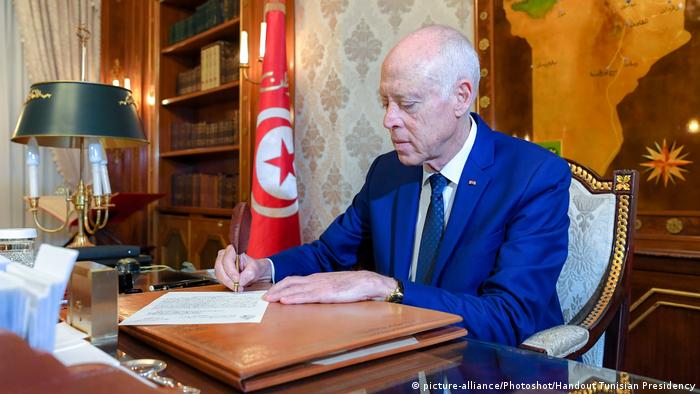
Tunisian Prime Minister Elyes Fakhfakh
TUNIS, July 16 (NNN-AGENCIES) — Tunisian Prime Minister Elyes Fakhfakh resigned following a row with the Islamist Ennahda Party, triggering a political crisis for the country as it contends with the economic fallout from the COVID-19 pandemic.
The move came after a political row with the Islamist-inspired Ennahda Party deepened and as momentum grew in parliament to oust the prime minister over alleged conflicts of interest.
In a statement, Fakhfakh’s office said he handed in his resignation “to avoid conflicts between institutions in the country” and to “open a new path for him to get out of this crisis.”
President Kais Saied must now choose a new candidate for prime minister who will be in charge of forming a new government.
Political divisions in parliament mean the task won’t be an easy one — and a failure to form a government could lead to an early election.

President Kais Saied
The collapse of Fakhfakh’s government comes less than five months after it was formed, and follows months of strained relations with Ennahdha, the largest party in parliament.
The last parliamentary election in October led to a divided parliament where no party garnered more than a quarter of the seats, which complicated efforts to form a stable government.
Fakhfakh, a former finance minister and the leader of a small social democratic party, is also under investigation over shares he owns in private companies that have been given public contracts in recent months. The 47-year-old denies any wrongdoing.
The prime minister’s resignation will also likely further delay economic reforms and efforts to combat a recent spike in coronavirus cases in the country after Tunisia successfully brought the first wave under control.
Tunisia was the birthplace of the Arab Spring in 2011 and has been hailed by Western countries for its comparatively successful transition to democracy. Despite democratic reforms since the revolution, the country is still struggling with a stagnating economy that has left many Tunisians frustrated. — NNN-AGENCIES






